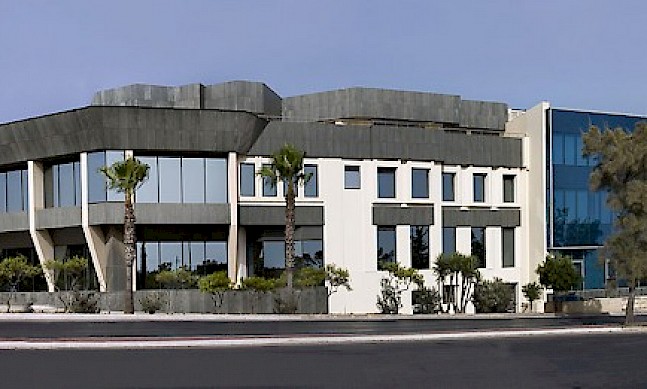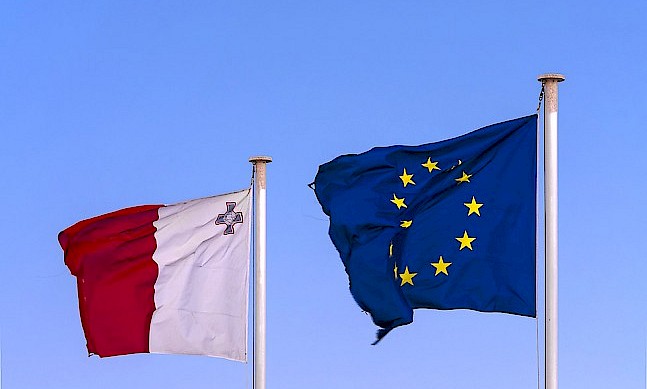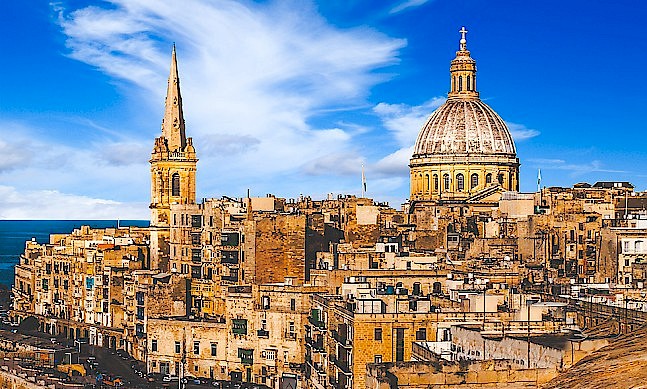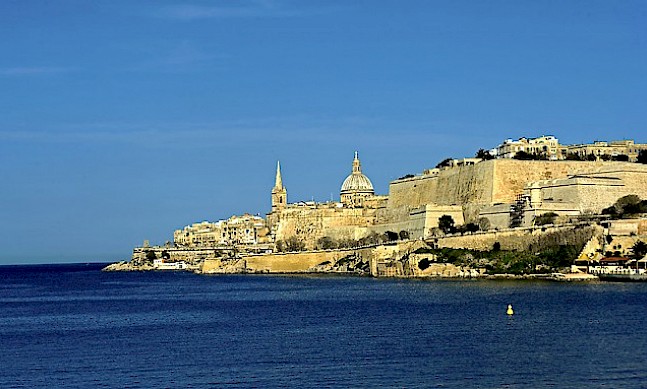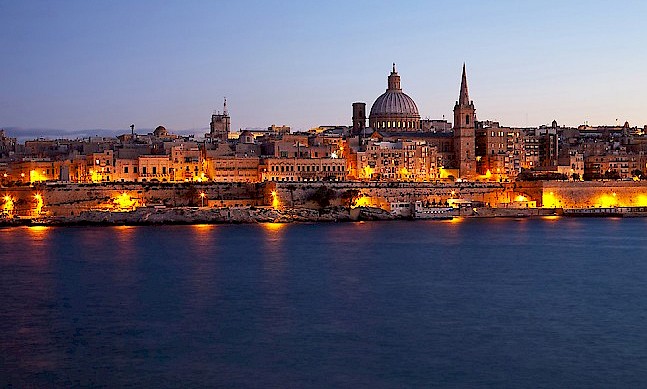The Malta Individual Investor Programme (MIIP), which Henley & Partners was contracted in 2014 by the government of Malta to design and implement, offers clients the opportunity to gain Maltese, and therefore European Union citizenship. Eric Major, the firm’s CEO and global managing partner, spoke to The Report Company in July 2015 about what the program entails and its anticipated impact.
The Report Company: How has Henley & Partners’ involvement in the Malta Individual Investor Programme evolved since its inception in 2013, and are you still on track to meet the goals you set at the outset of the programme?
Eric Major: Many will recall back in mid-2013 that the announcement of the programme generated a fervent national and European debate which ultimately led the government to bring a number of changes to the initial programme structure. By the time the debate subsided, which was after the programme received consent from the European Commission in January 2014, the programme was finally launched into the market in March 2014. The nature of the relationship between Henley & Partners and the government did accordingly evolve from the initial conception.
In the first instance, when the government issued its tender, it was meant to be an exclusive relationship because, at the time, the government felt that a matter as sensitive, delicate and important as citizenship required an experienced and “safe pair of hands” to manage and deliver such a citizenship programme. That was the original idea, but for a number of reasons, including the European Commission’s involvement, it evolved to its final iteration, which is the current three-tier investment structure that was ultimately launched in March 2014.
We are getting paid for the service that we have rendered and are continuing to render to the government, and effectively that service relates to the structuring and creation of this programme, including its continual promotion internationally. However, our services are not open-ended as the programme is currently capped at 1,800 applicants.
TRC: When do you expect that cap to be reached?
EM: The programme is doing very well in the market. There is a lot of interest worldwide, and we estimate that by the end of 2017, in terms of applications submitted, which is different than applications decided, that number will be reached. There is a process which takes 13 to 15 months for a decision to be rendered and for actual citizenship to be awarded and a passport issued.
“Malta is trying to attract a very interesting segment of global citizens to its shores.”Tweet This
TRC: Why was the Malta Individual Investor Programme chosen by Malta?
EM: Henley & Partners is the market leader and is involved in this industry around the world, having been retained and mandated by a number of governments to help them either create such programmes or fine tune and amend existing provisions. We know, more than anyone, that such programmes are always highly politicised and subject to emotionally-charged debate.
For governments, such programmes can be a significant revenue vehicle, outside of taxation and at no cost to the citizens of the nation, which allows them to raise significant capital and utilise those proceeds for economic development purposes. Dr Joseph Muscat, prime minister of Malta, was very progressive in his reasoning around this, because he recognises that with globalisation, more and more people are educated abroad, have businesses abroad, have family abroad, have multiple residences and citizenships, and it is easy for small nations to get lost in all of that. What Malta wanted to do was to get people to consider it as part of their global mix of business footprint, personal footprint, and tourism footprint.
This programme is a way to create a link and a bridge to a very fortunate and privileged segment of the international community, who have proven successful in business, in sport, in entertainment, and have amassed a very significant amount of wealth, as well as knowledge, connections and networks. Malta is trying to attract this very interesting segment of global citizens to its shores.
A certain percentage of these applicants will really connect with Malta on a permanent basis, and the secondary and tertiary spin-offs will be an important addition to the already significant contribution they are making under the programme, which is a €650,000 contribution to the National Development and Social Fund (NDSF), as well as the purchase or the renting of real estate and an investment in government bonds. Just the contribution alone constitutes more money than your average Maltese person pays in income tax in their whole lifetime. So the injection, the initial one-time contribution to the NDSF, is massively significant. Just doing the pure maths on the contribution to the NDSF, we are looking at north of €1.2 billion which the government can allocate to whatever economic and social objectives it wishes to meet. But I also wish to stress that the ancillary investments and consumption that some of these people will bring to Malta are equally significant, as are the network and opportunities that they bring with them.
TRC: A year after the implementation of the programme, what is your appraisal of the process so far?
EM: From an international comparison basis, the market launch and receptivity was by all accounts very good. The Maltese have proven to be very professional, serious and good executors of getting things done. I have nothing but praise for Identity Malta and how they are doing their work. To their credit, they are taking the due diligence process extremely seriously, and that takes time. They are dealing with a growth industry which means a growing number of applications, so we are seeing some pressure points arise, but it is still well within the realm of reasonability. Of course, things can always be improved through additional resources, as the pressure of additional applications continues to mount. All in all, the work being delivered is professional and commendable.
TRC: What type of investors does the programme target?
EM: We aim to target high net worth investors. Let me first provide a conceptual overview of the key drivers for these individuals around the world, and then, how Malta meets or addresses them. Clients who are speaking with companies like us do so because they may be coming from a part of the world where, unfortunately, their nationality, and therefore their passport, does not afford them visa-free travel. They run businesses abroad and usually travel extensively, but they always have to go to a consulate or embassy to get a visa, so for them, the possibility to acquire alternative citizenship can enhance their mobility.
Some are simply looking for security, because the world around them may be volatile. Think of places like Libya, Egypt or Syria, where good people suddenly see the world around them change for the worse and the primary concern is for the safety and future of their families.
Some are driven by the need to improve their quality of life, in the same way people may want to move to desirable places like Switzerland or Australia or the US. It’s all about the lifestyle.
The fourth driver is education and business opportunities. Many individuals, particularly from Asia, are very interested in providing a Western education opportunity for their children or, if they don’t have children, to expand opportunities for their business, or possibly even both.
The fifth one is a consideration which rarely leads the decision but that is still important, and that is tax planning. High net worth individuals are generally looking to improve their overall tax position.
Generally, it’s either one or all or a combination, of mobility, security, quality of life, education or business, and then tax planning. When I go through that list, and knowing the benefits that Malta offers, Malta ticks all of the boxes. This is why the Malta Individual Investor Programme is so popular.
“As a person who has 22 years’ experience in the business, I don’t know of any country or any government that does this level of due diligence on applicants of any programme.”Tweet This
TRC: Your firm’s recent global residence and citizenship report ranked Malta top. Why?
EM: What is important to know here is that even though it is Henley & Partners that commissioned this report, it draws on the knowledge and statements of industry stakeholders and experts other than only Henley & Partners. It involved the contributions of a dozen experts from reputable firms like Thomson Reuters, Fragomen, Knight Frank and others, and asked them how they view a country in terms of 10 specific attributes, including quality of life, taxation, efficiency of the programme, total programme costs processing timelines, etc. What the report does is combines everyone’s input regarding all these countries and these 10 attributes to produce a score. Yes, Malta scored the highest on the basis of these 10 attributes, as rated by these independent industry experts.
TRC: How are you working to ensure that only reputable applicants are admitted to the citizenship programme?
EM: These programmes are only as good as the last applicant that applies, and the countries who take this seriously are the ones that will have a sustainable programme. Fortunately for Malta, with its four-tier due diligence system, the government is taking this very seriously. I will say this, as a person who has 22 years’ experience in the business, I don’t know of any country or any government that does this level of due diligence on the applicants of any programme, of any category of immigration, let alone investor immigration.
Malta does online verifications through various databases as a first step; then background verification reports are mandated with not one but two firms, which check the veracity of the information that they receive as well as look at local information on the applicant and their businesses; a risk weighting software is also applied that will identify whether or not an applicant’s profile is generally risky and will therefore guide the officer with additional verification steps; and finally a government database-resource, tapping into relationships and alliances that Malta has with the US and the UK. That is why it takes time to get a passport from Malta.
TRC: How would you summarise the vision and ambitions of the program and how would you like it to be perceived?
EM: I think from my own personal experience, we see here a government that is very progressive in its thinking. I am very impressed time and again about how good ideas are being considered and advanced, are being worked on and how assets and resources are made available to move things forward. All ministries that we have dealt with are extremely accessible. The Maltese government has a “can-do” attitude, they are very pro-business, and this government is motivated by taking Malta to the next level and to being extremely competitive, particularly in the European market. I’ve seen them work hard at this. The results are now being seen and Malta is definitely in a better place.




